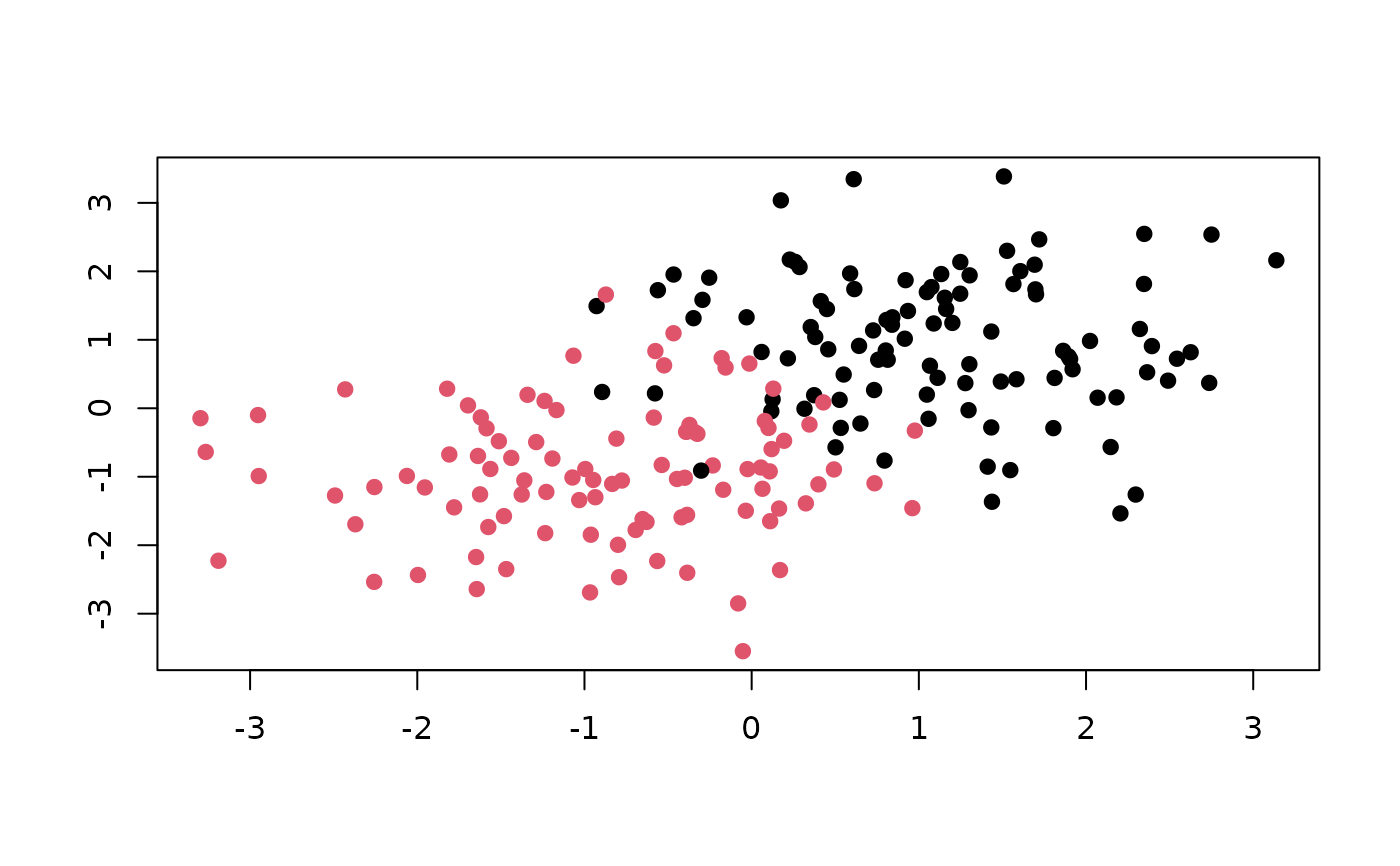2D Normals Classification Task Generator
Source:R/TaskGenerator2DNormals.R
mlr_task_generators_2dnormals.RdA TaskGenerator for the 2d normals task in mlbench::mlbench.2dnormals().
Dictionary
This TaskGenerator can be instantiated via the dictionary mlr_task_generators or with the associated sugar function tgen():
Parameters
| Id | Type | Default | Range |
| cl | integer | - | \([2, \infty)\) |
| r | numeric | - | \([1, \infty)\) |
| sd | numeric | - | \([0, \infty)\) |
See also
as.data.table(mlr_task_generators)for a table of available TaskGenerators in the running session (depending on the loaded packages).Extension packages for additional task types:
mlr3proba for probabilistic supervised regression and survival analysis.
mlr3cluster for unsupervised clustering.
Other TaskGenerator:
TaskGenerator,
mlr_task_generators,
mlr_task_generators_cassini,
mlr_task_generators_circle,
mlr_task_generators_friedman1,
mlr_task_generators_moons,
mlr_task_generators_peak,
mlr_task_generators_simplex,
mlr_task_generators_smiley,
mlr_task_generators_spirals,
mlr_task_generators_xor
Super class
mlr3::TaskGenerator -> TaskGenerator2DNormals
Examples
generator = tgen("2dnormals")
plot(generator, n = 200)
 task = generator$generate(200)
str(task$data())
#> Classes ‘data.table’ and 'data.frame': 200 obs. of 3 variables:
#> $ y : Factor w/ 2 levels "A","B": 1 2 1 1 2 1 2 1 2 2 ...
#> $ x1: num -0.848 -0.0949 0.9647 1.8593 -0.1538 ...
#> $ x2: num 0.742 0.72 1.217 1.592 -0.959 ...
#> - attr(*, ".internal.selfref")=<externalptr>
task = generator$generate(200)
str(task$data())
#> Classes ‘data.table’ and 'data.frame': 200 obs. of 3 variables:
#> $ y : Factor w/ 2 levels "A","B": 1 2 1 1 2 1 2 1 2 2 ...
#> $ x1: num -0.848 -0.0949 0.9647 1.8593 -0.1538 ...
#> $ x2: num 0.742 0.72 1.217 1.592 -0.959 ...
#> - attr(*, ".internal.selfref")=<externalptr>